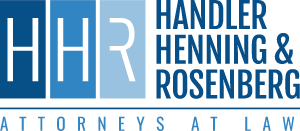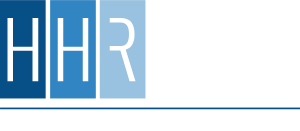For many people, a slip and fall accident doesn’t sound that serious, at least not until they’ve experienced a serious injury from one themselves. Otherwise, who hasn’t taken a spill and gotten right back up again, with nothing more than some embarrassment and hurt pride? While harmless versions of these accidents do occur every day, serious slip and falls account for hundreds of thousands of ER trips every year. When winter weather coats pavement and other surfaces with ice and mounds of snow, a slip and fall can be especially hazardous.
A slip and fall in snow or ice can leave you with injuries such as:
- Broken bones (especially in the wrists, hips, and tailbone)
- Spinal compression fractures
- Other spinal cord damage
- A concussion and other brain injuries
- Muscle and ligament injuries
- Internal bleeding
Injuries of this severity can further burden you with extensive medical bills, whether for orthopedic care, physical therapy, medication, and other expenses. Then there’s also any missed time at work, pain and suffering, and other damages to account for. These types of losses are what slip and fall lawsuits are meant to remedy.
While other slip and fall accidents might obviously be a property owner’s fault, such as stair rails in a state of dangerous disrepair, or a failure to provide warning signs for treacherous flooring, can you fault a property owner for weather? Can you sue a property owner for a slip and fall caused by snow buildup or ice? It may not be the most straightforward case to win, but yes, there are many instances where the case can and should be made.
Filing a Lawsuit for a Slip & Fall on Ice or Snow
In Pennsylvania, you have two years after the slip and fall accident occurred to file a claim. Whether you are filing against a business owner, a municipality, or a homeowner, the insurance company isn’t going to be motivated to help your recovery; they will work to save themselves money. Part of how they do this is by trying to pass off some of the responsibility for the accident, or the liability, onto you.
Establishing Liability
Whatever the details of your case, comparative negligence is going to play a role in determining how much your slip and fall case could be worth. In Pennsylvania, this means that you have to be considered 50% or less at fault for the slip and fall accident in order to be owed any compensation. For however much you’re considered at fault, whether it’s 10% or 45%, that’s the percentage by which your compensation will be reduced. Any more fault than half the blame, and your claim will be denied.
This means that whoever you’re going after will be highly motivated to play up anything they can to avoid liability themselves, shifting the responsibility back onto you.
This could mean, for example, that insurance may try to argue things like you:
- Didn’t have the right footwear for the weather
- Ignored obvious warning signs the property owner had put up
- Ventured out to somewhere they couldn’t have expected you to go
- Were walking too quickly given the wintry weather
- Were distracted by being on your phone
However, if there’s no way for them to prove you shared some responsibility for the slip and fall, this still wouldn’t mean that the property owners themselves are on the hook for your accident. Not every slip and fall is due to negligence. If it was more a matter of uneven ground, a dip in the floor, or something that can be considered normal and expected, even if snow and ice were involved, it may be tricky to prove any negligence.
In order to establish that the property owner was liable for your slipping on ice or snow, you would have to prove all the following:
- The property owner had acted negligently
- This negligence created hazardous ice and snow buildup
- These hazardous conditions caused your slip and fall and your injuries
What Counts as Negligence?
One of the go-to examples for a slip and fall case is one where a spill wasn’t dealt with by a business, nor was a warning sign put up, and someone slipped on that puddle and was injured. It is a reasonable expectation for staff to take care of a spill within a certain amount of time, or to at least promptly put up a warning sign so no one gets hurt. Any failure to take these steps can be viewed as negligence, a failure in their duty to customers.
It would not be reasonable, however, to expect a homeowner to keep shoveling and salting the sidewalk in front of their house in the middle of a storm. If, however, a storm passed hours ago and a homeowner knows that guests will be arriving later that day, and they don’t take reasonable measures to provide a safe walk up to their door, then this might be considered negligence on their part.
As another example, a business could be on the hook for negligence if someone slipped and fell on ice or snow, if the business had failed to:
- Keep sidewalks, stairways, the parking lot, etc. free of ice and snow buildup
- Put up warning signs in front of areas they hadn’t cleared yet
- Provide adequate lighting for walkways and parking lots
Again, this is more likely to be the case if some time has passed after a storm has hit. What is considered a reasonable expectation for someone to keep the premises safe will depend on many details, such as the time of day, who owns the property, and what kind of expectation someone arriving on the property can have for experiencing a hazard-free area.
For example, if someone is a trespasser, such as a robber who slipped and fell on an icy driveway in the middle of the night, they wouldn’t exactly have the strongest case that the property owner was negligent in any duty toward them.
Invitees and licensees, however, are both parties that are welcome on the property, for business or social reasons, respectively. Property owners have a much higher duty of care to these types of visitors. For such guests, any failure on the property owner’s part to reasonably deal with snow and ice building up could be considered negligence.
Our Pennsylvania Slip & Fall Lawyers Are Ready to Help You
While it is possible to win your slip and fall claim, a case involving snowy and icy weather can be a particularly complex one. You need a legal advocate on your side, especially if the property owner’s insurance won’t budge in trying to assign you the blame instead. At Handler, Henning & Rosenberg LLC, we have more than a century of winning experience. Our team has the resources, insight, and dedication to help you move forward after a serious premises liability accident.
We don’t get paid until you do. Schedule your free consultation today to see if our lawyers can help you: (888) 498-3023.


